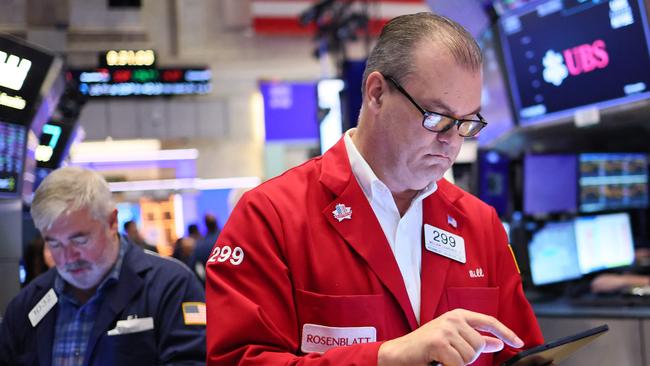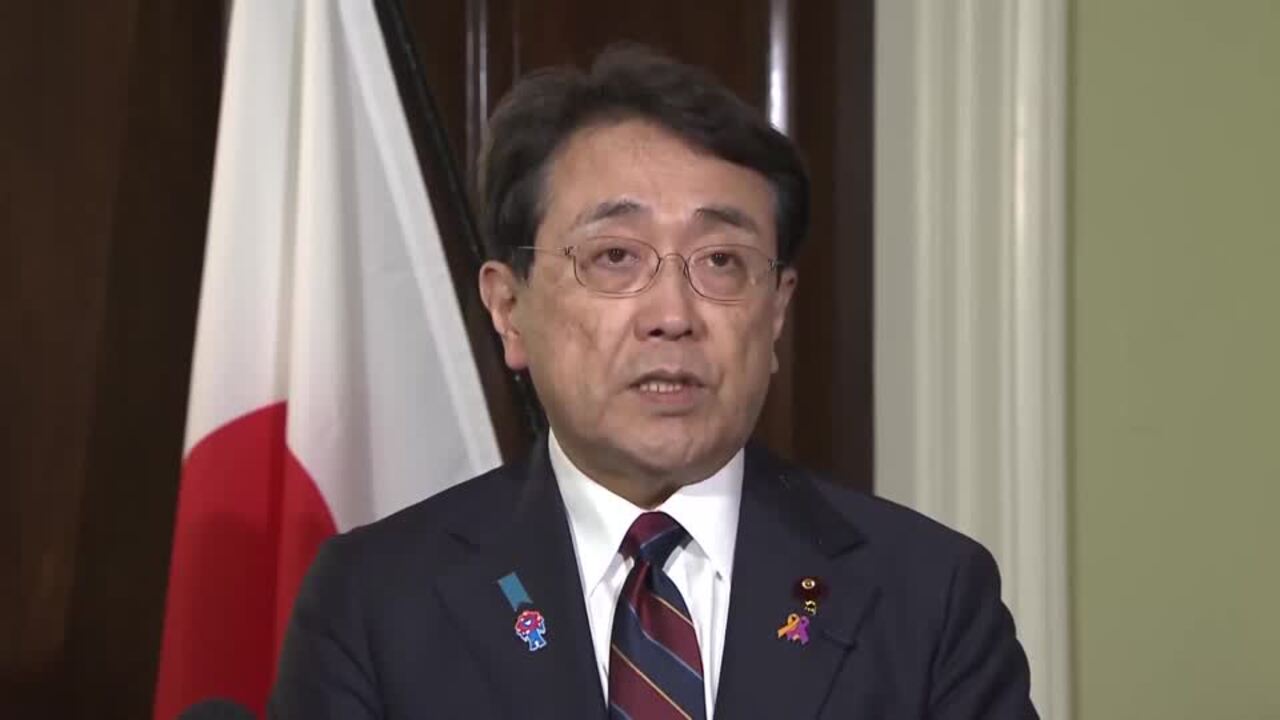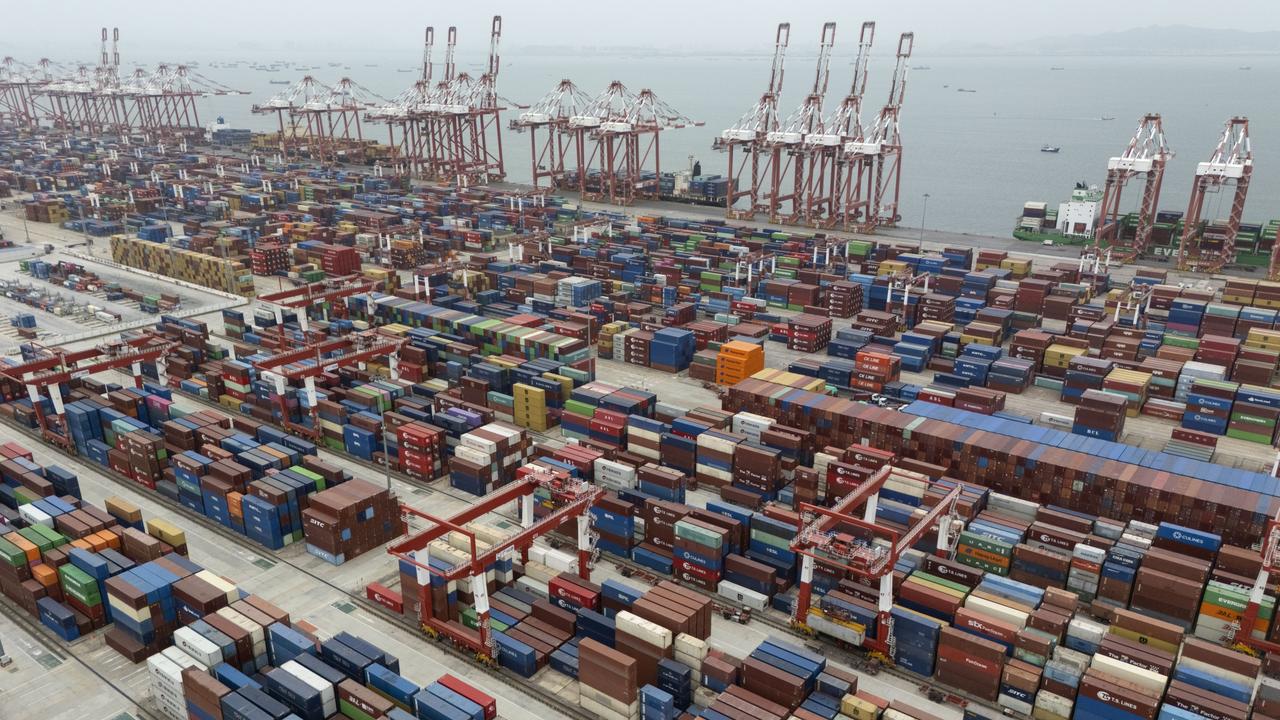Stocks rebound continues but US exceptionalism theme questioned
Nomura says global equity investors are increasingly lookingbeyond the shores of the US to diversify portfolios and capture growth opportunities elsewhere.

A rebound in stocks accelerated this week on indications that some of the world’s biggest economies, including China, are willing to de-escalate the trade war that rocked global markets last month.
Sharemarkets have risen a long way in anticipation of a rollback of tariffs, yet their impact on economic growth and corporate earnings through the trade war in recent months is yet to be felt.
Australia’s S&P/ASX 200 index jumped 1.1 per cent to a two-month high of 8238 points on Friday, bringing its rebound from a 16-month low of 7169.2 points last month to a whopping 15 per cent.
After falling as much as 17 per cent from a record high of 8615.2 points in February, the ASX 200 was less than 5 per cent below its record high after an exceptionally strong rebound.
A one-week rise of 3.4 per cent for the ASX 200 marked its best week since late 2023.
A seven-day winning streak of 5.4 per cent was the biggest since mid-2020.
CBA was the biggest points contributor on Friday, rising 1.4 per cent to a record high of $169.66.
US officials continued to say that other countries want to reach agreements to lower tariffs.
US National Economic Council director Kevin Hassett cited trade proposals from over 20 countries.
Importantly, he said the US is close to making headway with China, which now faces a 145 per cent tariff on exports to the US and has imposed a 125 per cent on US goods, despite some exemptions.
Commerce Secretary Howard Lutnick said he has reached a trade deal with an unnamed country.
Treasury Secretary Scott Bessent cited progress on trade deals with India, South Korea and Japan.
There were also vaguely positive indications from the eurozone, Japan and China.
Bloomberg said the EU plans to make proposals next week – including lowering trade and non-tariff barriers, boosting US investment, co-operating on tackling China’s steel overcapacity and purchasing US goods like liquefied natural gas and technologies – to kickstart trade negotiations with the US.

Japan’s top trade representative, Ryosei Akazawa, said Japan aims to reach a trade agreement in June, with bilateral discussions expected to gain momentum in mid-May.
On Friday, China’s Ministry of Commerce released a statement that senior US officials have repeatedly expressed their willingness to talk to Beijing about tariffs.
“The US has recently sent messages to China through relevant parties, hoping to start talks with China,” the ministry added. “China is currently evaluating this.”
S&P 500 futures rose as much as 0.9 per cent on this news after initially falling 0.4 per cent on disappointing quarterly reports and outlook from Amazon and Apple.
However, the only concrete actions so far have been a 90-day pause of US reciprocal tariffs and a US decision to stop adding autos tariffs on top of steel and aluminium tariffs for car companies.
The 145 per cent US tariff on China remains in place along with 25 per cent tariffs on aluminium and steel and non-energy related goods from Mexico and Canada that aren’t protected by the USMCA.
But it’s not just the trade war that investors need to worry about.
Nomura Asia-Pacific Equity Strategist, Chetan Seth, says the US stockmarket – while still a dominant force – faces “unprecedented policy uncertainty with still-elevated absolute and relative valuations”.
Since 2010, foreign investors have net-bought a net US$3.3 trillion ($5.16bn) of US equities.
Their current holdings are estimated to be about US$16.5 trillion or about 17.8 per cent of the total US equity market value of about US93 trillion.
But global equity investors are increasingly looking beyond the shores of the US to diversify portfolios and capture growth opportunities elsewhere, according to Nomura’s Seth.
He has ranked potential beneficiaries of any such “equity reallocation flows” according to his evaluation of market liquidity, economic and financial fundamentals, governance and regulation, risk and stability and importance to the global markets and economy,
Based on his framework, India within Emerging Markets and Japan within Developed Markets are “best positioned to capture these reallocation flows, should investors diversify away from the US”.
While China is the “theoretical No.1 candidate”, it comes with a significant caveat.
He says the available data doesn’t fully capture global investors’ prevailing beliefs and views around investability in the wake of geopolitical risks emanating from ongoing US-China tensions.
A lack of updated data is a key reason why he excluded geopolitical risk from his framework.
It’s a big “if”, but if US-China relations were to improve meaningfully, he thinks China could potentially experience unprecedented capital inflows.
Apart from China and the heavy caveat attached to its theoretical top ranking, India and Japan are able to absorb substantial capital flows due to the depth of their markets liquidity and the breadth of their investment options across an extensive listed universe of stocks.
“This sets them apart from many other countries,” he said.
Some other countries like Singapore appear almost picture-perfect on individual metrics, but their limited depth and breadth will likely constrain their ability to attract capital flows.






To join the conversation, please log in. Don't have an account? Register
Join the conversation, you are commenting as Logout